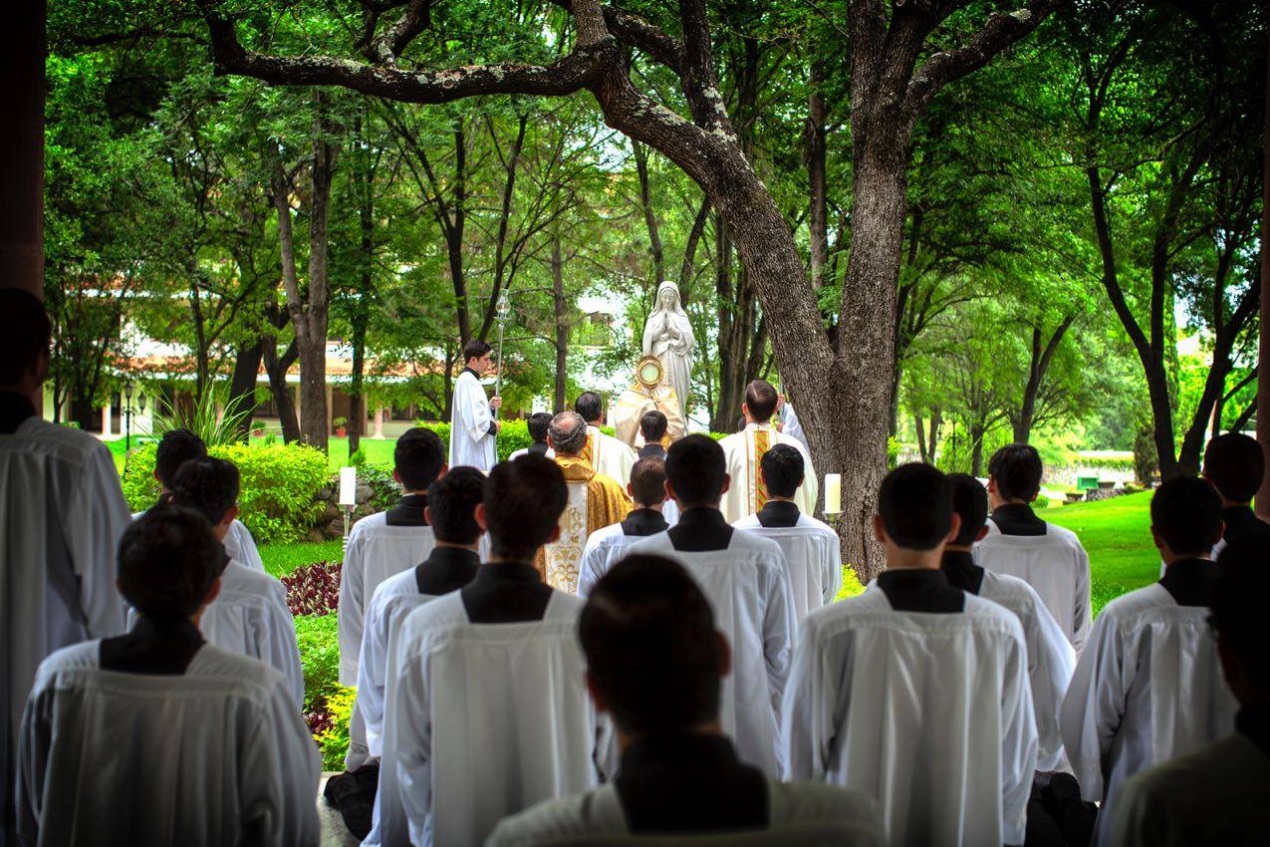By P. Vicente D. Yanes, LC
Of all the descendants of the house of David, it is likely that Saint Joseph was among the most ordinary, and that he would be the one chosen by God to accompany His Son is something that surely no one could have imagined. “But men look at the outward appearance, while God looks at the heart of man” (1 Samuel 16:7). And in the heart of that man, God found everything He needed for the mission He was going to entrust to him.
The Scripture says that Saint Joseph was “a just man,” and perhaps the path of this Great Patriarch toward holiness was precisely this: to be “a just man,” accepting his condition as creature and son with humility, but with great trust in God his Father. Where others might see poverty and limitation, the holy man finds the path that leads to life: living, as a consequence of his own lack, united to the One who is the source of all. A just man is one who, without pretensions, fulfills his mission, giving all he is and all he can, and even knows how to leave to God the most important part without hindrance, knowing that He is the one who gives growth (cf. 1 Cor 3:6-9) and each of the fruits (cf. Jn 15:1-5) until bringing it to its full completion (cf. Phil 1:6). The just man is just a man, who allows God to be God, worships Him with his life fully placed in His hands, and cooperates with fidelity and love in whatever his Lord and Father asks of him.
The “formula” of holiness for life and mission that Saint Joseph presents to us (without writing any treatise outside of his own life) was this: be that man whom God wants you to be, and nothing more, but do not be one minute without God or far from Him. In a word, his justice was this: humility.
If humility is what we are, we do not know what life is (nor can we understand its lessons) without humility. The humble man knows, because he sees things from God. “Where there is pride, there will always be ignorance; but where there is humility, there will be wisdom.” The humble is wise because he listens more to God than to himself.
Humility prepares us for the divine gift, for receiving grace, and for God to accomplish His work in us: only he who knows himself to be poor asks. He does not claim, nor demand, nor think he deserves it. “God resists the proud, but gives grace to the humble” (Jas 4:6).
Humility allows us to recognize our errors more easily, without many complications, and to know how to ask for forgiveness, forgive, accept, and look at each other with mercy. “Where do wars and quarrels among you come from?” (Jas 4:1). Undoubtedly, from a lack of humility: from forgetting that we all have limits and deficiencies, but that God invites us to treat each other with mercy as He is with us (cf. Lk 6:36-38).
The humble man submits to God out of love, to what the Lord commands him because he recognizes Him as his Father, and for that reason, he faces the devil and his temptations confidently, because he knows that God is with him and he with God, and therefore he has nothing to fear (cf. Ps 23). The humble are not so easily defeated by the enemy’s tricks, because their hearts have already been conquered by God. “He who humbles himself will be exalted” (Mt 23:12); words of Jesus, a sure promise.
In Saint Joseph, what Sir James Matthew said is perfectly fulfilled: “Life is a great lesson in humility.” This life in particular is a perennial panegyric to humility. Saint Joseph was holy because he was just; he was just because he was humble. And as “Humility is walking in truth,” in the words of the Holy Doctor of Ávila, we can conclude that to be humble, it is necessary to have much contact with God in prayer and in life: that is walking in truth. Taking advantage of the mention, Saint Teresa also said:
“I do not remember ever asking Saint Joseph for anything that he has not granted. It is astonishing the great mercies that God has done for me through this Blessed Saint. I have not known anyone who is truly devoted to him that does not find him more beneficial in virtue, because he greatly benefits the souls entrusted to him. I only ask for love of God that those who do not believe will try him, and they will see from experience the great good of entrusting oneself to this glorious Patriarch and having devotion to him.”
The Saint recounted that for 40 years she had not missed a single feast of Saint Joseph without asking him for a special grace, and she had always been heard. If we want to test it, here is the recommendation.
I do not think it is accurate to think that “Saint Joseph never spoke” (or that “he hardly spoke”). Rather, we should recognize that his most important words were his actions. Fulfilling the will of God, with simplicity and without seeking prominence, was his main discourse. It may have been few words, it may be so, and we will not know. But more than speaking, what Saint Joseph demonstrated as an eloquent speaker was in the faith, hope, and charity with which he lived. He was humble; what he was not was a charlatan.
What would Saint Joseph tell us on a day like today? I believe he would easily refer us to the words of the Apostle: “Whatever you do, work at it with all your heart, as working for the Lord, not for men, knowing that from the Lord you will receive the inheritance as your reward. It is the Lord Christ you are serving” (Col 3:23-24).
———-










